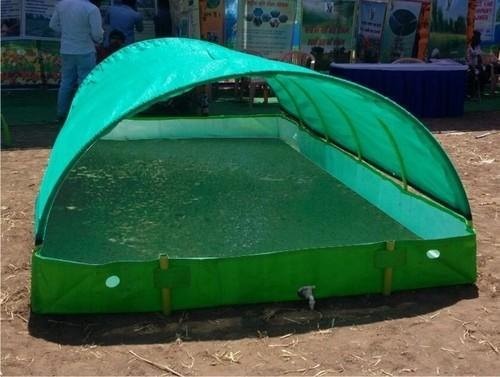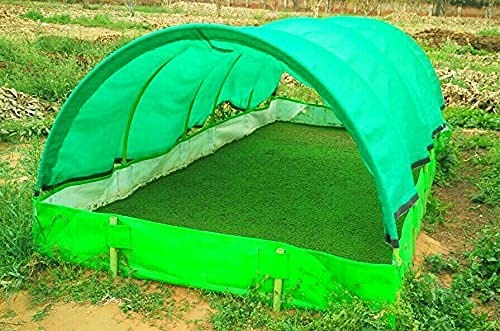Azolla Bed
Azolla Bed
zolla beds are specialized systems used for the cultivation of Azolla, a small aquatic fern that offers numerous benefits in agriculture and environmental sustainability. Azolla beds consist of shallow water bodies or containers where Azolla plants are grown and propagated.
Azolla is known for its unique symbiotic relationship with nitrogen-fixing cyanobacteria. This fern hosts these beneficial bacteria in its leaf cavities, enabling it to convert atmospheric nitrogen into a form that can be readily absorbed by plants. As a result, Azolla acts as a natural biofertilizer, enriching the water with nitrogen and other essential nutrients.
The cultivation of Azolla in dedicated beds provides several advantages. Firstly, it serves as a sustainable and cost-effective source of nitrogen for nearby crops. Farmers can incorporate Azolla into their cropping systems, either by directly applying it as green manure or by incorporating the Azolla biomass into the soil as an organic amendment.


Azolla beds also play a role in environmental conservation. The rapid growth of Azolla can help in nutrient uptake and mitigation of water pollution, particularly excess nitrogen. It acts as a natural biofilter, absorbing nutrients and reducing their impact on water bodies, thereby contributing to the improvement of water quality.
Furthermore, Azolla beds are relatively easy to establish and maintain. They require minimal water and land resources and can be set up in both small-scale and large-scale farming systems. Azolla plants are known for their fast growth rate, enabling quick biomass production and frequent harvesting.
The harvested Azolla can serve as a feed supplement for livestock, as it contains high levels of protein, vitamins, and minerals. Its use as animal feed can help reduce the reliance on costly commercial feeds and enhance the nutritional value of livestock diets.
